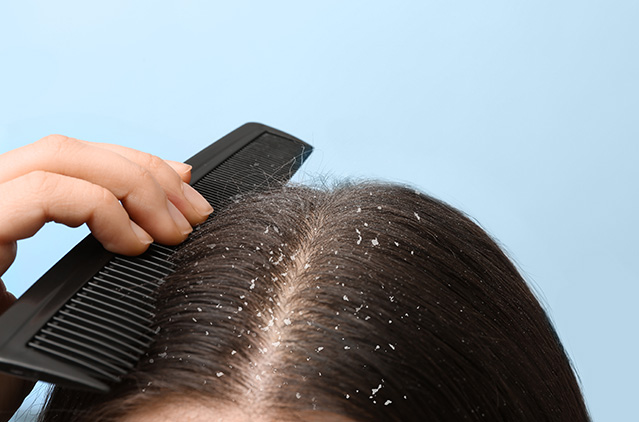
Flakes on your shoulders may seem like a small problem, but dandruff is more than just an embarrassment—it’s a sign your scalp is crying for help. Ignoring it doesn’t just affect your appearance; it can actually lead to long-term hair damage. The good news? With the right treatment, you can stop the flake—and the fallout.
What Is Dandruff, Really?
Dandruff is a scalp condition caused by excess shedding of dead skin cells. It often results from a combination of oil buildup, yeast overgrowth, stress, poor hygiene, or even harsh shampoos. And while it’s common, that doesn’t mean it’s harmless.
How Dandruff Can Damage Your Hair
It’s easy to dismiss dandruff as a cosmetic issue, but here’s what it can really do if left untreated:
- Weakens Hair Roots
The inflammation and itchiness caused by dandruff can weaken the hair follicles, leading to increased hair fall. - Triggers Scalp Infections
Constant scratching opens tiny wounds on the scalp, making it vulnerable to fungal or bacterial infections. - Stunts Hair Growth
A flaky, irritated scalp can block hair follicles, slowing down or completely stopping healthy hair growth. - Leads to Dry, Brittle Hair
Dandruff strips away natural moisture, leaving your strands dry, rough, and prone to breakage. - Causes Premature Hair Thinning
Over time, untreated dandruff can contribute to visible thinning, especially around the crown or hairline.
Why Treatment Is a Must (and Not Just a Shampoo Swap)
Many people switch to an anti-dandruff shampoo and expect overnight results. But real relief often needs more targeted solutions, such as:
- Medicated Scalp Tonics
Help treat fungal infections and soothe inflammation. - Deep Cleansing & Hydrating Treatments
Remove product buildup and restore moisture balance. - Scalp Exfoliation Therapies
Gently remove dead skin, promoting better product absorption and healthy cell turnover. - Dietary and Lifestyle Guidance
Stress, poor diet, and hormonal imbalances can also contribute to dandruff. A holistic approach works best. - Professional Diagnosis
Not all flakes are dandruff—sometimes it’s psoriasis, seborrheic dermatitis, or a fungal condition. A trichologist can help identify the exact issue.
Final Thought
Dandruff is not just a surface problem—it’s a scalp health issue that can silently sabotage your hair. Don’t wait until hair fall or thinning sets in. With timely treatment and the right guidance, you can enjoy a clean scalp and healthy, flake-free hair all year round. Is Scalp Micropigmentation Treatment Helpful? Experts Explain the Benefits

